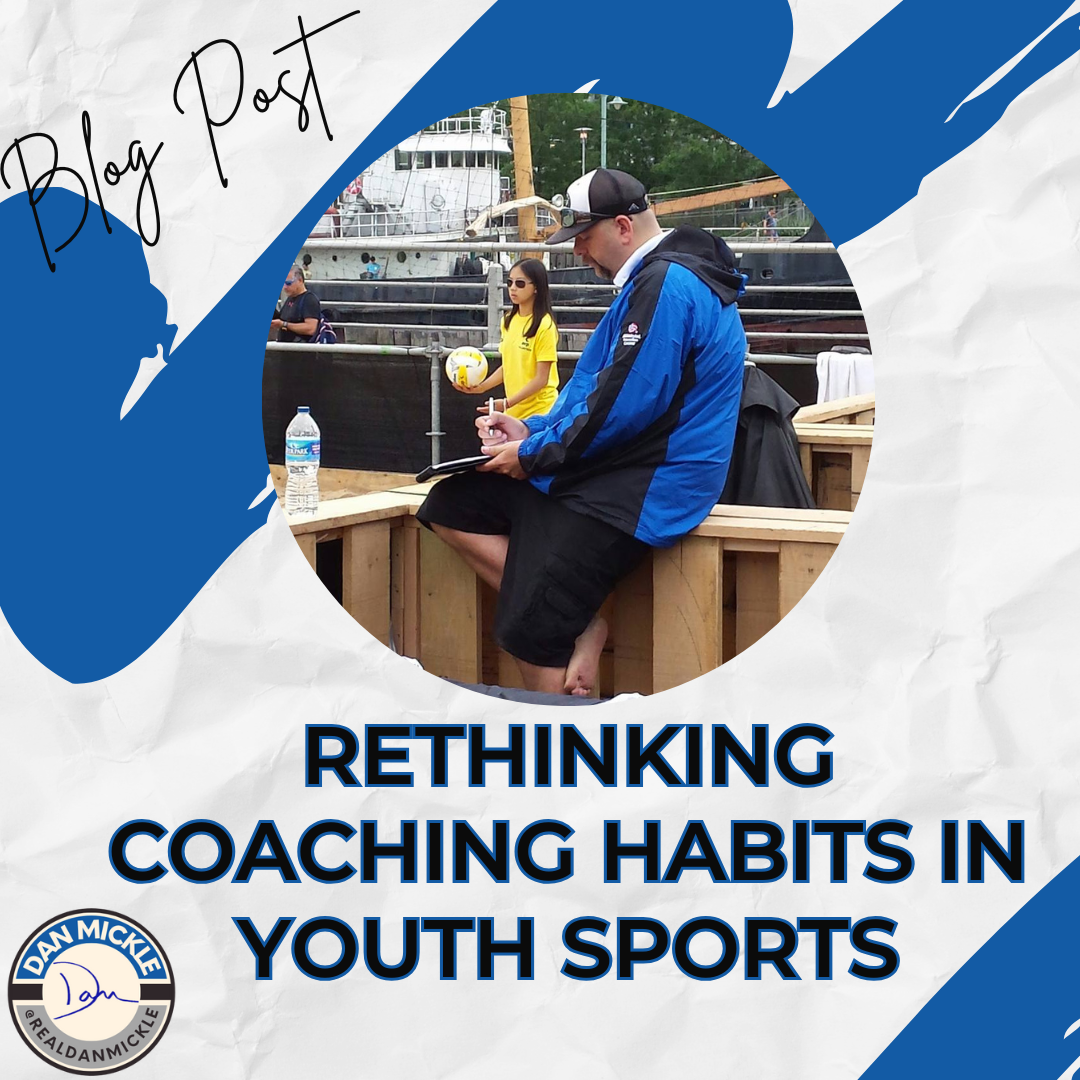TL;DR: Youth sports coaching needs an update. We don’t have to throw the whole system out, but it’s time to rethink outdated habits. We need more empathy, adaptability, and real communication.
There’s a sacred moment in coaching that no clipboard or credential can prepare you for. It happens somewhere between the third consecutive practice, where your setter’s brain is clearly still in geometry class, and the moment your libero bursts into tears mid-drill because her dog ate her favorite socks. It’s in those moments, when the plan crumbles and the human steps forward, that you get your real test as a coach.
And more often than not, the test isn’t about volleyball. Or soccer. Or swimming. It’s about what framework you’re working from.
Still Serving the Same Old System?
In It Got Me Thinking 024: Fix the Dish, Not the Kids, I drew the parallel between youth sports and a tired potluck staple, one that keeps showing up not because it works, but because it always has. Coaching can fall into that same trap. We hang on to outdated patterns not because they serve our athletes, but because they’re familiar.
Coaching in today’s world demands more than just knowing the Xs and Os. It requires knowing your humans.
Not just their stats or their strengths, but who they are on those imperfect days. The ones when they’re running on three hours of sleep and a granola bar. The days when home is chaotic, school is overwhelming, and your practice is supposed to be their safe place, not their final straw.
So what do we do? Do we cling to tradition and routines that no longer serve? Or do we, as coaches, take a fresh look at our role?
Redefining Success in Coaching
That starts by redefining success. Not just in terms of wins and tournament trophies, but by how many players return next season. How many trust you with their struggles. How many walk out of your program more confident, more resilient, and more kind.
And here’s the secret most coaches miss: empathy doesn’t weaken your standards. It strengthens your connection.
Yes, you can still hold kids accountable. Yes, you can still demand effort. But you can do it while acknowledging that sometimes, just showing up took everything they had that day. That matters.
What Needs to Change in Coaching Habits
1. The myth of toughness
Let’s retire the belief that yelling builds character. That vulnerability is weakness. That emotions have no place on a court or field. Mental performance isn’t about suppressing feelings. It’s about understanding and managing them. If a player crumbles after a mistake, your job isn’t to harden them, it’s to teach them how to bounce back.
2. The one-size-fits-all feedback
Some athletes respond to fire. Others need a gentle nudge. If your feedback sounds the same for every player, every day, you’re not coaching, you’re broadcasting. Tune into your team. Learn their languages.
3. The fear-based motivation
Playing time shouldn’t be dangled like a threat. Growth doesn’t come from walking on eggshells. It comes from feeling safe enough to risk failure, and supported enough to try again. Create that space.
4. The silence around struggles
Players are dealing with more than we see. Anxiety. Burnout. Pressure. If we don’t make space to talk about it, they will assume they can’t. And they’ll either shut down or walk away.
Want to see how coaching evolves to meet those needs? Listen to MentalCast Episode 038 on neurodivergent athletes. It explores how different brains process sports and why adapting your coaching isn’t lowering the bar, it’s raising your game.
Need a reminder that failure isn’t a death sentence? The Benefits of Losing tackles how setbacks can be fuel for long-term growth, if we coach the recovery, not just the result.
And if you’re looking to support athletes beyond practice, the CHADD organization offers incredible insight for coaches and families supporting ADHD athletes. It’s not just about sideline strategies, it’s about understanding how attention, behavior, and emotion intersect with sport.
Evolve with Intention
Look, nobody’s asking you to throw out everything that worked in 1995. But we are asking you to stop clinging to it just because it’s familiar. Ask yourself: does your coaching style reflect what you needed when you were an athlete? More importantly: does it reflect what they need now?
Coaching isn’t just what you teach. It’s what you tolerate, what you celebrate, and what you choose to change.
So here’s to the coaches brave enough to rethink their approach. To listen when it’s uncomfortable and adapt when it’s inconvenient. You’re the ones who transform a tired, rigid system into something that builds character, joy, and resilience.
You don’t need a new title. You just need a willingness to evolve.
Let’s get to work.


